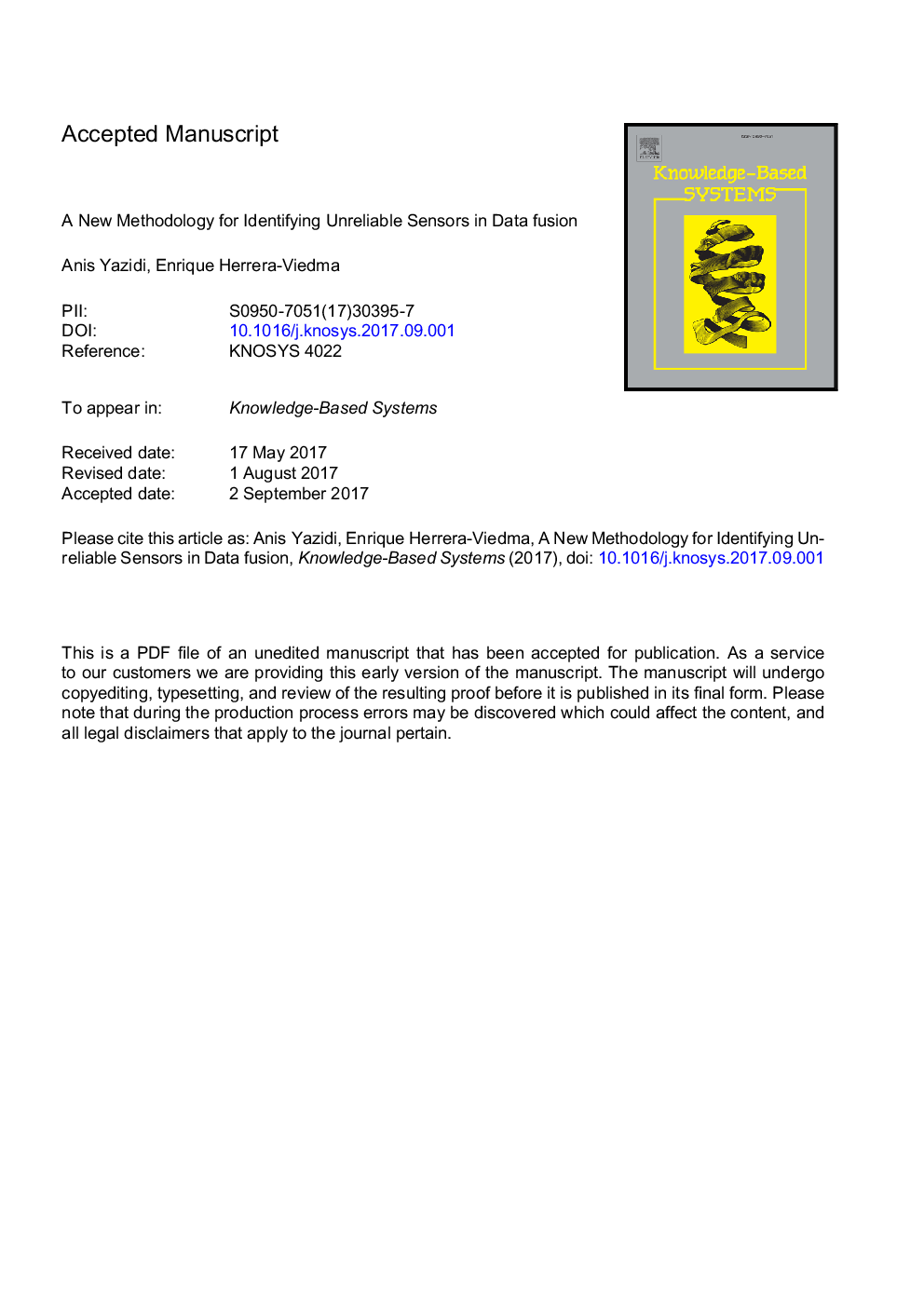| کد مقاله | کد نشریه | سال انتشار | مقاله انگلیسی | نسخه تمام متن |
|---|---|---|---|---|
| 4946033 | 1439265 | 2017 | 38 صفحه PDF | دانلود رایگان |
عنوان انگلیسی مقاله ISI
A new methodology for identifying unreliable sensors in data fusion
ترجمه فارسی عنوان
یک روش جدید برای شناسایی سنسورهای غیر قابل اعتماد در تلفیق داده ها
دانلود مقاله + سفارش ترجمه
دانلود مقاله ISI انگلیسی
رایگان برای ایرانیان
کلمات کلیدی
موضوعات مرتبط
مهندسی و علوم پایه
مهندسی کامپیوتر
هوش مصنوعی
چکیده انگلیسی
Sensor fusion is a fundamental research topic that has received significant attention in the literature. An important body of research has focused on assessing the reliability of a sensor or more generally an “information source” by comparing the readings with the ground truth in an online or offline manner. The Weighted Majority Voting algorithm [25], a well-known online learning algorithm, is a typical example of a class of approaches that assess the reliability of a sensor by comparing its readings to the ground truth in a online manner. Unlike the latter stream of research, in this article, we tackle the problem of identifying unreliable sensors without the knowledge of the ground truth- which is a novel research direction in its own right. We advocate that comparing the readings of a sensor to the rest of the sensors gives an invaluable information about its reliability. In this article, we present a solution to the problem based on the theory of S-Model Learning Automata (LA) [17]. Interestingly, the feedback to the S-Model environment LA is defined in an intuitive manner, namely, it is proportional to the number of sensors adhering to the chosen action. Our solution does not impose any constraint on the parity of the number of sensors and thus is general and can handle any arbitrary number of sensors. Apart from applying the classical S-Model LA, we develop a novel S-Model based pursuit LA algorithm that achieves a faster convergence than the legacy solution by an order of magnitude of ten while still yielding high accuracy. The devised schemes have been subjected to comprehensive experiments including comparison to the state-of-the-art.
ناشر
Database: Elsevier - ScienceDirect (ساینس دایرکت)
Journal: Knowledge-Based Systems - Volume 136, 15 November 2017, Pages 85-96
Journal: Knowledge-Based Systems - Volume 136, 15 November 2017, Pages 85-96
نویسندگان
Anis Yazidi, Enrique Herrera-Viedma,
